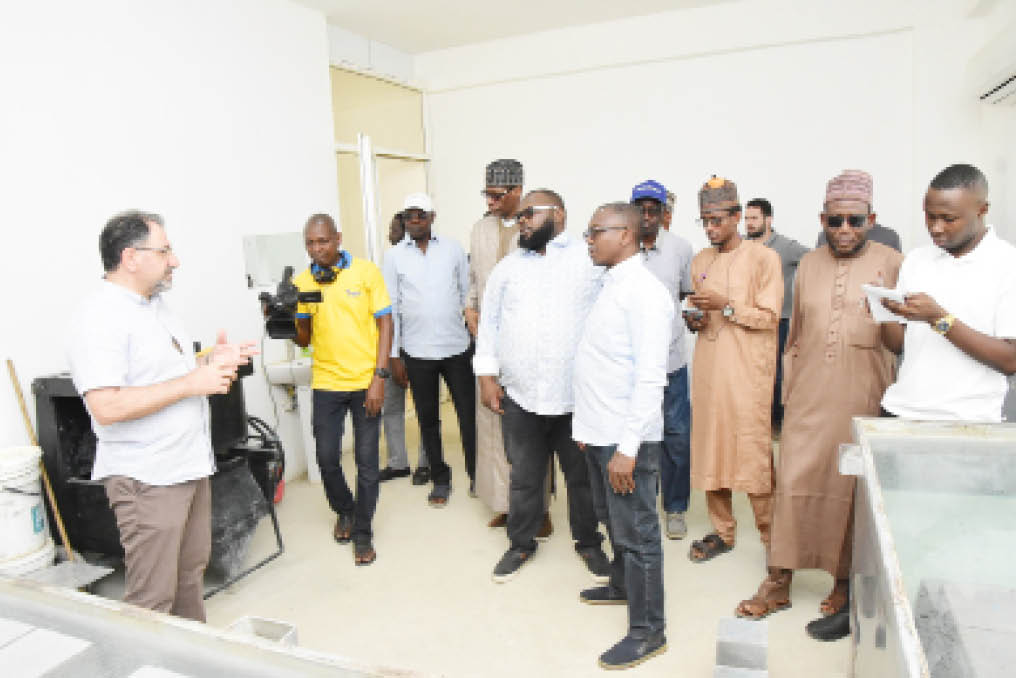The construction landscape is one of the most troubled sectors in Nigeria at the moment with the rising cost of building and construction in the country.
However, Zeberced Group, a Turkish conglomerate in Nigeria, is currently transforming the industry with focus on mining, ready-mixed concrete and hot-mix asphalt production, high-end housing investments, industrial zones and power plants constructions.
At a recent tour of projects with the management of Media Trust Group, led by the acting Group Chief Executive Officer (GCEO), Ahmed Shekarau, the Managing Director (MD) of Zeberced, Adil Aydin Kurt, noted that the company had a vision of transforming Nigeria’s construction industry even though it had never received any contract from local, state and federal governments
Kurt said, “Whatever we invest and earn in this country, we reinvest. We also have estate projects and different visions. We established the first commercial ready-to-mix batching plant, which is crucial for development. Because this country is developing, especially Abuja, which represents Nigeria and should be the best capital city in Africa given Nigeria’s potential and the potential of its people. However, we need private sector support.”

Incorporated in 2007 with 100 per cent Turkish capital in the FCT, Zeberced, which began operations with quarry, concrete and asphalt plants, today operates with two quarries located in Abuja and Kaduna State.
In 2011, Zeberced ventured into the construction industry, beginning with housing investments located on five hectares in the Katampe District of Abuja. The company, in the same year, signed a contract for building the Turkish Embassy and completed the work within two and a half years.
‘Challenges in construction sector surmountable’
Kurt noted that the challenges in the construction sector had doubled in the last few weeks, especially with global inflation, but insisted that the challenges were surmountable if the government was willing to partner with the private sector.
He said, “Of course we have challenges, but the government must push. It is about sustainable development. It will serve the construction sector covering cement and stones, which are the critical materials for construction. From here, we make blocks of all kinds, erect houses, build roads, etc.
“There is a huge potential in Nigeria’s construction sector which we have seen. This is a developing country and we need a lot of infrastructure to be put in place for the growth of the raw materials to accelerate development of quarry business which requires the production of aggregates for various structural designs in Nigeria.
“The two materials in the construction sector are cement, and the other one is stone, so we chose stone, and we are processing this by adding value to the raw hills. For instance, in our country, you cannot even see granite, but here, everywhere is granite; it forms a strong material to build infrastructure like roads, and it remains one of the best materials.
“In our country, we use to go metres deep to bring out these stones, but here everywhere is stone, so this is really a blessed country. If you keep it as a hill, it does not make any economic impact to the people. However, when you bring it and add value to it by processing it to various aggregates like we have here: primary, secondary and tertiary sorting of the sizes of granite needed, we build the construction sector.”
While still noting that Nigeria was blessed with all the materials it needed for construction of any kind, he said it could only be realised through value addition which offered investment opportunities to the government and private entities to develop.
Mr Kurt, however, said Nigeria could not grow when it relied on other countries for about 95 per cent importation of finished products which it could produce, process and create the needed employment for its citizens and improve on the quality of life of its people.
Speaking on their estates, he said the Zeberced Paradise Valley Estate located along the Kubwa Expressway was made up of 110 blocks of semi-detached two-bedroom flats which had just been completed, adding that the other five-bedroom duplexes with 24 units were constructed with high quality materials.
He said his company would partner with the government in providing affordable housing for low-income earners.
‘We support concrete road construction’
Mr Kurt expressed support to the Minister of Works, Dave Umahi, who since assumption of office advanced the urgency for contractors to start making proposals for concrete roads to provide value for money and ensure the durability of the roads.
He said, “I support the call again. It depends on your budget and your priority for quality roads that will serve you for a longer time. The whole thing is about quality and value for money.
When we have concrete roads, they are durable, although it depends on the area and the kind of soil you have.
“Concrete is more expensive, but its durability and quality are higher than regular asphalt roads. Generally, concrete roads are being built in swampy and wet areas.”
Similarly, the General Manager (GM) of Zeberced, Nasir Ibrahim, told Daily Trust that there was an urgent need for the local production of goods to reduce the pressure of forex, and called for partnership with the government to achieve the target.

 Join Daily Trust WhatsApp Community For Quick Access To News and Happenings Around You.
Join Daily Trust WhatsApp Community For Quick Access To News and Happenings Around You.


